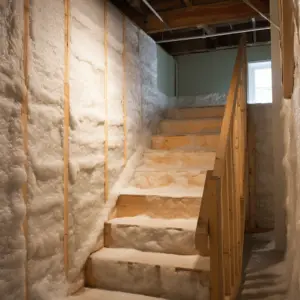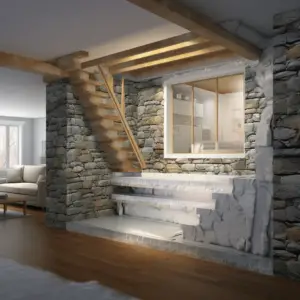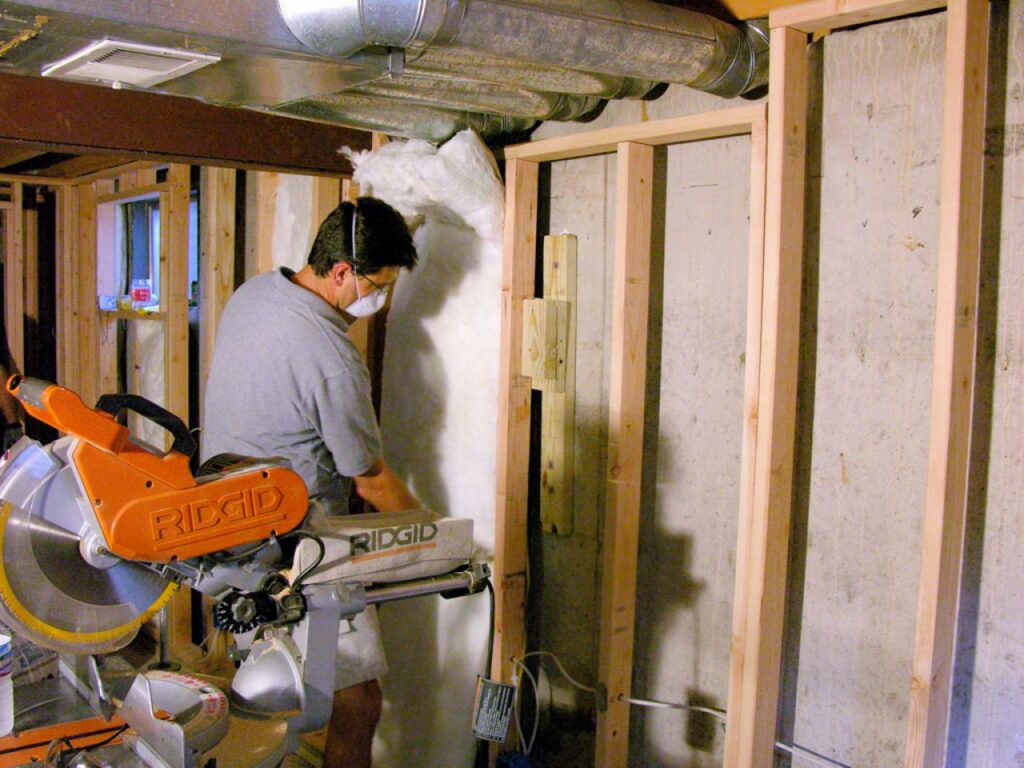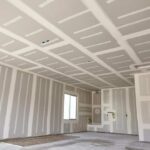Insulating Below-Grade Basement Walls, Basement walls are vital to every house, just as air is to a human being. Is there a need to insulate your basement walls below grade? Yes, it is a great project to undertake for you to have joy, comfort, and even create extra space, although it depends on some factors, as we will see in our subsequent sections.
It’s crucial to finish your basement to increase home value. But do you know how to renovate your basement? Many solutions are available to homeowners, but first, you should understand your environment.
The surrounding dirt acts as a natural insulator, so you need extra basement insulation to keep temperatures in check. Let’s dig deeper to reveal more.
Table of Contents
Do You Need To Insulate Basement Walls Below Grade?

Below Grade Basement
A basement is the excavated area below ground level with walls, a stairs, and a slab that is 8 feet deep.
Thus, a below-grade basement is just below ground level. Pay attention to specifics by fixing the basement depth, staircase, number of basement floors, and cellar/basement.
Lack Of Insulation In Basement Walls
When the air inside the completed space comes into contact with the foundation walls below the insulation, when a basement is finished but inadequately insulated, the foundation walls will be cooler because of the natural temperature on the other side.
Thus, it cools when it comes into contact with the cold foundation walls. Condensation happens at this point, forming in your finished basement’s insulation and wood frame. It can extend to the floor behind the done walls resulting in your basement becoming bedrock of mold spores.
Is There A Need To Insulate Your Basement Walls Below Grade?
It is ideal for getting your basement walls insulated but would this be the right type of insulation for your house’s basement walls?
The primary reason for insulating the below-grade basement walls is to assist in the thermal functioning of the house and also aid in safeguarding the concrete from freezing and damage.
Lack of below-grade insulation on a basement wall adds to 25% of the reasons the house loses energy and proper heat coordination.
If you are in a cold-weather environment, you require below-grade insulation for your basement walls.
Before insulating the below-grade basement walls, you must know why it is important. Keep reading
Benefits Of Insulating Basement Walls Below Grade
Regulate heat coordination-The deeper the ground, the warmer the house becomes, thus reflecting on the upper level and countering the cold weather.
Preserve enough energy for the house- All-time energy is what a house needs to be stable. With the below-grade basement, you are guaranteed to preserve sufficient energy against the foundational weakness and other consequences.
Extra space- If you need some good space, then your below-grade basement is something you need to consider.
Prevent damage and freezing of concrete walls- Not all types of insulation work well in concrete and stone basements. Therefore, below-grade basement wall insulation protects your walls from damage and freezing.
Disadvantages Of Insulating Basement Walls Below Grade
Moisture accumulation-Due to the easy absorption of water, there is a like hood of too much moisture, mold, and mildew in the basement, and as a result, it can pose health challenges and the rotting of the basement wall
Damage control- In case the underground drainage and other things are not properly done, you will be at risk of regular damage control leading to a colossal damage
Expensive- Considering where you live, insulating a below-grade basement can be expensive.
Best Methods For Insulating Basements Walls
Most people don’t know the microscopic composition of concrete, which is why they ignore the number of moisture levels present in the concrete. The truth is all concrete has substantial levels of moisture in it; hence it acts like a sponge because it has pores which contain water. As a result, you must assume that your concrete is saturated and full of water to insulate it correctly.
Form board
These are large sheets of expanded polystyrene foam called rigid foam sheets (XPS). They are 4by 8 feet and are accessible at your nearest stores.
Rigid foam sheets are suitable for those who want to insulate the basement before the construction is complete. It works well when the concrete or block walls are smooth and flat.
It is easy to install and can be cut using a regular wood saw and scoring.
Its cost ranges from $ 20-$32 to insulate 32 square feet of basement walls with 1-inch thick rigid foam.
The rigid foam may lie vertically or horizontally
Spray Foam
It is polyurethane foam sprayed with a hose and gun when erecting basement studs. Since it is expandable, you can trim the excess foam once it dries.
It is an incredible option for those with many cracks, joints, and seams for continuous insulation with no dents to allow air intrusion.
It requires a profession, although there are many DIY kits even though they cover up to 200square feet.
Mineral Wool Sheets

Stone or silica is heated to form a wooly mat like fiberglass batts. Mineral wool fills thick foam insulation.Damp-resistant sheeting helps basements. They melt at 2150 degrees Fahrenheit and are recyclable, making them eco-friendly and fire-resistant in traditional housing.
They cost over $100 for 32 square feet, the most expensive of the three.
The material is absorbent and soaks up moisture quickly.
Installing basement-wall insulation will save your wallet, reducing your energy expenses if you live in a colder zone. It will eliminate the issue of condensation and mold from forming on the walls; thus, the basement with insulation keeps dryer and smells better than the one without an insulator.
As a popular adage says, “ A stitch in time saves nine” it is wise to consider all the factors as explained herein, so keep in mind the weather, environment, and every other detail to avoid making an expensive mistake. It is best if you involve a professional.


